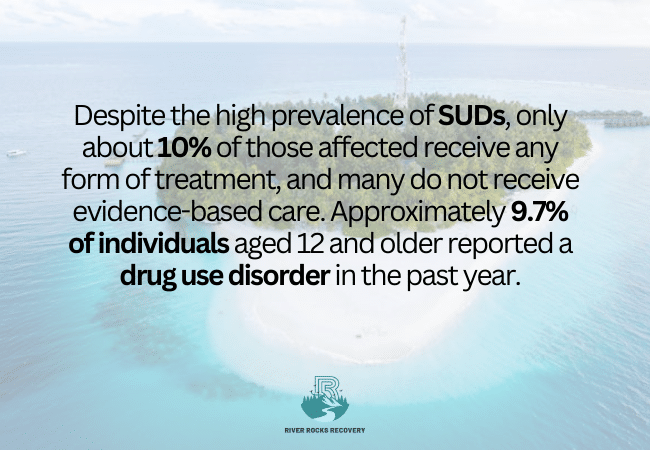The choice to seek addiction treatment is a significant step toward recovery, but with so many rehabilitation alternatives available, the process can be stressful. While alcohol and drug addictions are both kinds of substance abuse, they require different treatment approaches. Alcohol and drug addictions present unique challenges, requiring tailored treatment approaches. Understanding the differences between Alcohol Addiction Treatment and Drug Rehab Treatment can help you make an informed decision that aligns with your needs and recovery goals.
Understanding the variations and similarities among treatment choices might help you or a loved one make an informed decision. So, let’s join this blog and find the right way to choose the right rehab center.
Understanding the Nature of Alcohol and Drug Addiction
Alcohol addiction means when you drink alcohol regularly despite the poor outcomes. Alcohol’s ease of access and social acceptance might make it difficult to identify addiction. The common signs include cravings, inability to control drinking habits, developing a tolerance, and experiencing physical withdrawal symptoms.
On the other side, drug addiction includes prescription pharmaceuticals, illegal narcotics, and over-the-counter substances. However, the type of drug has a considerable impact on addiction progression and effects. The common symptoms include obsessive focus, physical and psychological dependence, withdrawal symptoms, and poor athletic or academic performance.
Understanding Addiction: Alcohol vs. Drugs
Alcohol Addiction
Alcohol is one of the most commonly abused substances due to its availability and cultural acceptance. However, prolonged alcohol misuse can lead to physical dependency, mental health challenges, and social consequences.
Signs of alcohol addiction include:
- Drinking more than intended.
- Inability to stop despite negative consequences.
- Experiencing withdrawal symptoms like nausea, tremors, and anxiety.
Treatment at an Alcohol Addiction Treatment Center often focuses on medical detox, therapy, and education about the long-term effects of alcohol on the body.
Drug Addiction
Drug addiction includes a wide range of substances, from opioids and stimulants to prescription medications and illicit drugs. Each drug affects the body differently, requiring specialized treatment plans.
Common signs of drug addiction include:
- Intense cravings and withdrawal symptoms.
- Behavioral changes, such as secrecy or neglecting responsibilities.
- Physical symptoms like weight loss, poor hygiene, or frequent illnesses.
Difference Between Alcohol and Drug Addiction Treatments
Substance-specific Protocols
Alcohol detox frequently necessitates medical monitoring to treat withdrawal symptoms, which can be deadly in extreme circumstances. Drug addiction treatment techniques differ widely. Opioid addiction may necessitate medication-assisted therapy (MAT), whereas stimulant addiction may prioritize behavioral therapies.
Triggers and Relapse Prevention
Because alcohol is so widely available, alcoholism treatment frequently targets social and environmental factors. Drug addiction therapy focuses on preventing relapse by addressing cravings and triggers unique to the drug.
Duration and Intensity of Care
Both alcohol and drug rehabs include inpatient and outpatient services, although the degree and duration of care might vary. Drug rehabs, for example, may offer lengthy programs for long-term opioid or methamphetamine addiction, whereas alcohol rehab may focus on group therapy and 12-step programs.
Choosing the Right Rehab Center for Treatment
1. Program Specialization
Some rehabs focus on either alcohol or drug addiction, while others provide full treatment for both. Look for programs that cater to your specific substance use disorder.
2. Therapies Offered
Whether looking for a drug or alcohol rehab center, they must provide the following therapies to reclaim their life.
- Cognitive Behavioral Therapy (CBT) is successful in treating both alcohol and drug addiction
- Medication-assisted treatment (MAT) is commonly used to treat opioid or alcohol dependency.
- Yoga, meditation, and nutritional advice can help supplement standard therapy.
3. Location and Environment
Consider whether a local institution or one away from familiar stressors is more appropriate for healing. Some people flourish in peaceful, nature-focused environments, whereas others gain from urban areas with numerous resources.
4. Aftercare Support
Aftercare is essential for long-term rehabilitation. Look for programs that include support groups, therapy, and tools to help prevent recurrence.
5. Partial Hospitalization Program (PHP)
Partial Hospitalization Program is ideal for individuals needing intensive support without full residential care. It offers structured therapy sessions, medical oversight, and education about addiction, making it effective for both alcohol and drug recovery.
6. Intensive Outpatient Program (IOP)
Intensive Outpatient Program provides flexibility for those who need treatment but must balance work or family commitments. It’s a great option for transitioning from PHP or addressing less severe addictions.
7. Outpatient Program
Outpatient program care is designed for individuals in the early stages of addiction or those who’ve completed more intensive treatment. It focuses on maintaining sobriety and addressing triggers in a supportive environment.
8. Sober Living Program
Sober living is a vital step for individuals transitioning back into everyday life. It offers a substance-free environment with peer support, helping residents develop healthy habits and routines.

The Importance of a Comprehensive Addiction Treatment Program
Whether dealing with alcohol or drug addiction, the best rehabilitation programs offer holistic care to address every aspect of recovery. At River Rocks Recovery, our Addiction Treatment Program includes:
- Personalized Care Plans: Tailored treatment approaches based on individual needs and goals.
- Family Support: Family involvement in therapy to rebuild trust and strengthen relationships.
- Evidence-Based Therapies: Proven methods like CBT, DBT, and trauma therapy to promote long-term recovery.
Finding the Right Drug Rehab Center? Call River Rocks Recovery!
Are you battling with addiction and not knowing where to turn? River Rocks Recovery specializes in compassionate, individualized care to help you reclaim your life. Our evidence-based treatments and holistic approaches foster a secure, supportive environment in which healing can begin. Whether you’re dealing with opioid addiction, prescription drug dependency, or another substance use disorder, our professional staff is here to help you every step of the way. Contact River Rocks Recovery today to take the first step towards a healthier, happier you.
Making the Right Choice with River Rocks Recovery
Choosing between Alcohol Rehab Treatment Centers and Drug Addiction Treatment Centers depends on the substance, severity of addiction, and personal circumstances. At River Rocks Recovery, we guide individuals and their families through this process, ensuring they receive the most appropriate care.
Contact us today to learn more about our Partial Hospitalization Program, Intensive Outpatient Program, and Sober Living Program. Let us help you or your loved one find the path to recovery and a healthier future. Your path to recovery starts with the right support—don’t hesitate to reach out us at:(888) 905-6281 today.
FAQ on Alcohol vs. Drug Rehab
What are the main differences between alcohol and drug addiction treatment?
Alcohol addiction treatment often focuses on managing withdrawal symptoms like seizures or delirium tremens, while drug addiction treatment addresses a wide range of substances, each requiring tailored care for specific withdrawal and recovery needs.
How do I know if I need an Alcohol Rehab Treatment Center?
If you’re experiencing withdrawal symptoms like tremors, nausea, or anxiety, or if alcohol use interferes with your daily life, it’s time to consider treatment at an Alcohol Rehab Treatment Center.
What is the role of a Partial Hospitalization Program (PHP) in recovery?
PHP provides intensive care without requiring overnight stays. It’s ideal for individuals needing structured therapy and medical oversight during the early stages of recovery.
Can I balance work and recovery with an Intensive Outpatient Program (IOP)?
Yes, IOP is designed for individuals who need flexibility while receiving structured therapy. It allows patients to attend sessions during the day or evening while maintaining personal and professional responsibilities.
What is the benefit of a Sober Living Program?
A Sober Living Program provides a safe, alcohol- and drug-free environment where individuals can practice sobriety, build routines, and transition back into everyday life with peer and professional support.
Do rehab programs include family support?
Yes, many programs, including those at River Rocks Recovery, incorporate family therapy to rebuild trust and strengthen relationships, which are essential for long-term recovery.




























